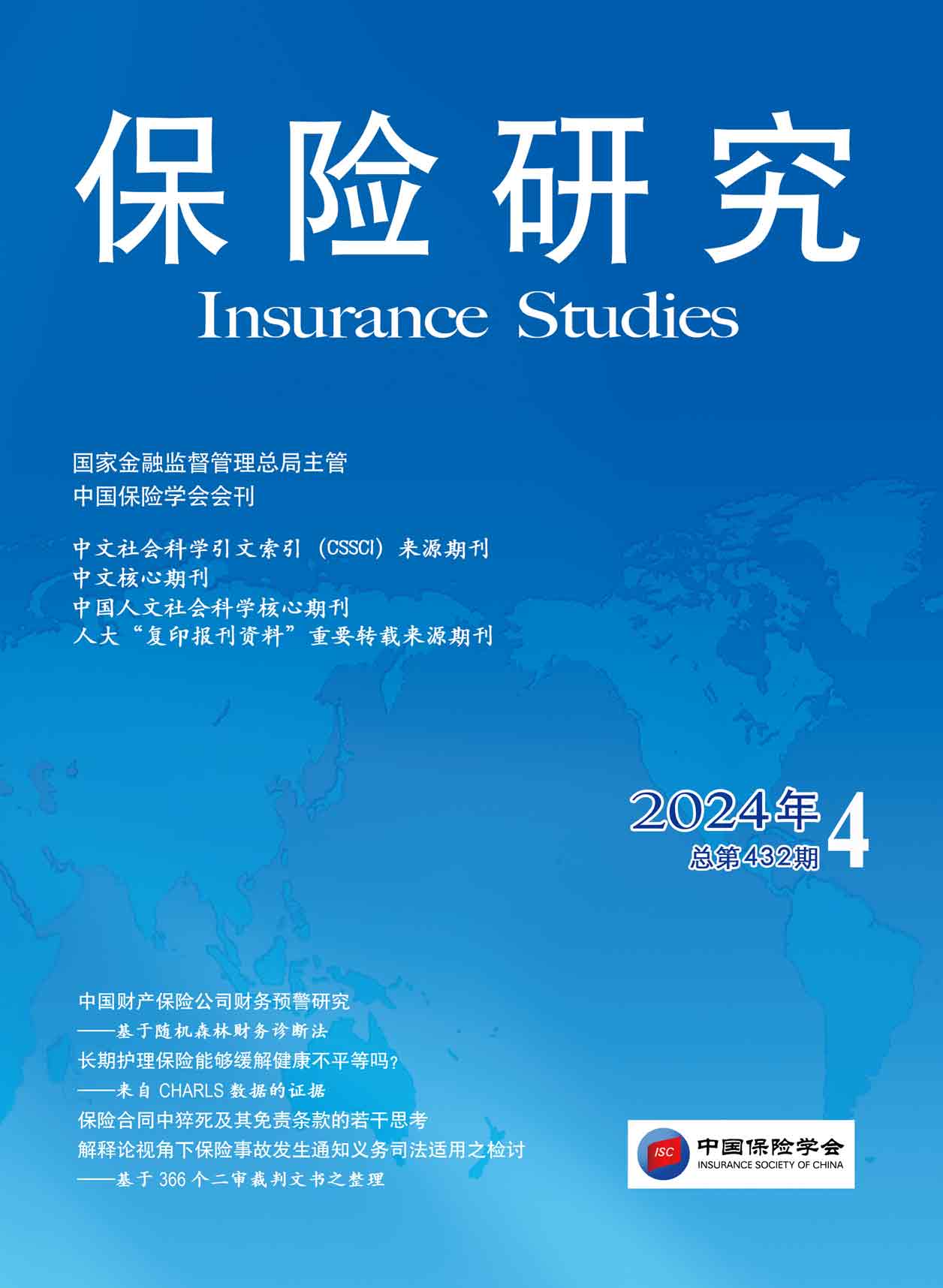
《保险研究》20240405-《剩余风险与商业医疗保险中的选择效应研究》(杨攀续、钟仁耀)
[中图分类号]F840.684[文献标识码]A[文章编号]1004-3306(2024)04-0062-14 DOI:10.13497/j.cnki.is.2024.04.005
资源价格:30积分
- 内容介绍
[摘 要]实现多层次医疗保障的有序衔接需要分析各项目间的互补关系。本文构建剩余风险指标,基于2018年中国健康与养老追踪调查数据,描述剩余风险对商业医疗保险中的选择效应的影响,实证分析选择效应的类型并解释其形成机制。剩余风险衡量个体选择性参保时面临的健康风险,即剔除多层次医疗保障可能降低的风险后剩余的健康风险。研究发现,商业医疗保险市场中的主要选择效应为正向选择,剩余风险较高者参保概率仅为较低者的60%,即多层次医疗保障水平较低且健康风险较高的个体反而参保概率较低。考虑多层次医疗保障与商业医疗保险的互补关系将使模型对参保行为的解释效力提升18%。通过控制遗漏变量、改变估计方法、替换剩余风险衡量指标和使用工具变量的方式确认了实证结果的稳健性。正向选择在年龄和家庭保障能力方面存在异质性,年龄较低、家庭储蓄水平和家庭经济水平较高的个体正向选择参保的概率较高。机制分析发现,风险厌恶可以解释正向选择现象,即风险厌恶程度较高者积极降低自身剩余风险且主动参加商业医疗保险使得市场中呈现“保险-剩余风险”的负相关关系。
[关键词]商业医疗保险;正向选择;逆向选择;风险厌恶
[基金项目]国家社会科学基金重点项目“积极应对人口老龄化的社会养老服务制度城乡统筹和区域协调发展战略研究”(21AZD076)。
[作者简介]杨攀续,华东师范大学公共管理学院博士研究生;钟仁耀,华东师范大学公共管理学院教授、博士生导师。
Residual Risk and Selection Effect in Commercial Health Insurance
YANG Pan-xu,ZHONG Ren-yao
Abstract:To realize the orderly connection of multi-level medical security system,it is necessary to analyze the complementary relationship among various items.The residual risk index is constructed to describe the influence of the residual risk on the selection effect in commercial health insurance (CHI).This paper uses the 2018 China Health and Retirement Longitudinal Survey data to study what type of selection effect exists in the market and explain its generation mechanism.A "residual risk" refers to the actual risk faced by people when they selectively participate in CHI,eliminating the individual health risks reduced by the medical security system.This paper finds that the main selection effect in the CHI market is advantageous selection,and the probability of participating in CHI for those with higher residual risk is only 60% of that for those with lower residual risk.That is,individuals with lower medical security level and higher health risk have a lower probability of participating in CHI.Considering the complementary relationship between basic medical insurance and CHI will increase the explanatory power of the model for the behavior of participating in CHI by 18%.The robustness of the empirical results is confirmed by controlling for omitted variables,changing the estimation method,replacing the residual risk measures and using instrumental variables.The advantageous selection effect is heterogeneous with respect to age and family security ability.Individuals with a lower age,a higher level of household savings,and a higher level of household wealth have a higher probability of participating in CHI when the residual risk is low.The mechanism analysis finds that risk aversion can explain the advantageous selection phenomenon.Those with higher risk aversion actively reduce their own residual risk and actively participate in CHI,which leads to a negative correlation between CHI and residual risk in the market.
Key words:commercial health insurance;advantageous selection;adverse selection;risk aversion
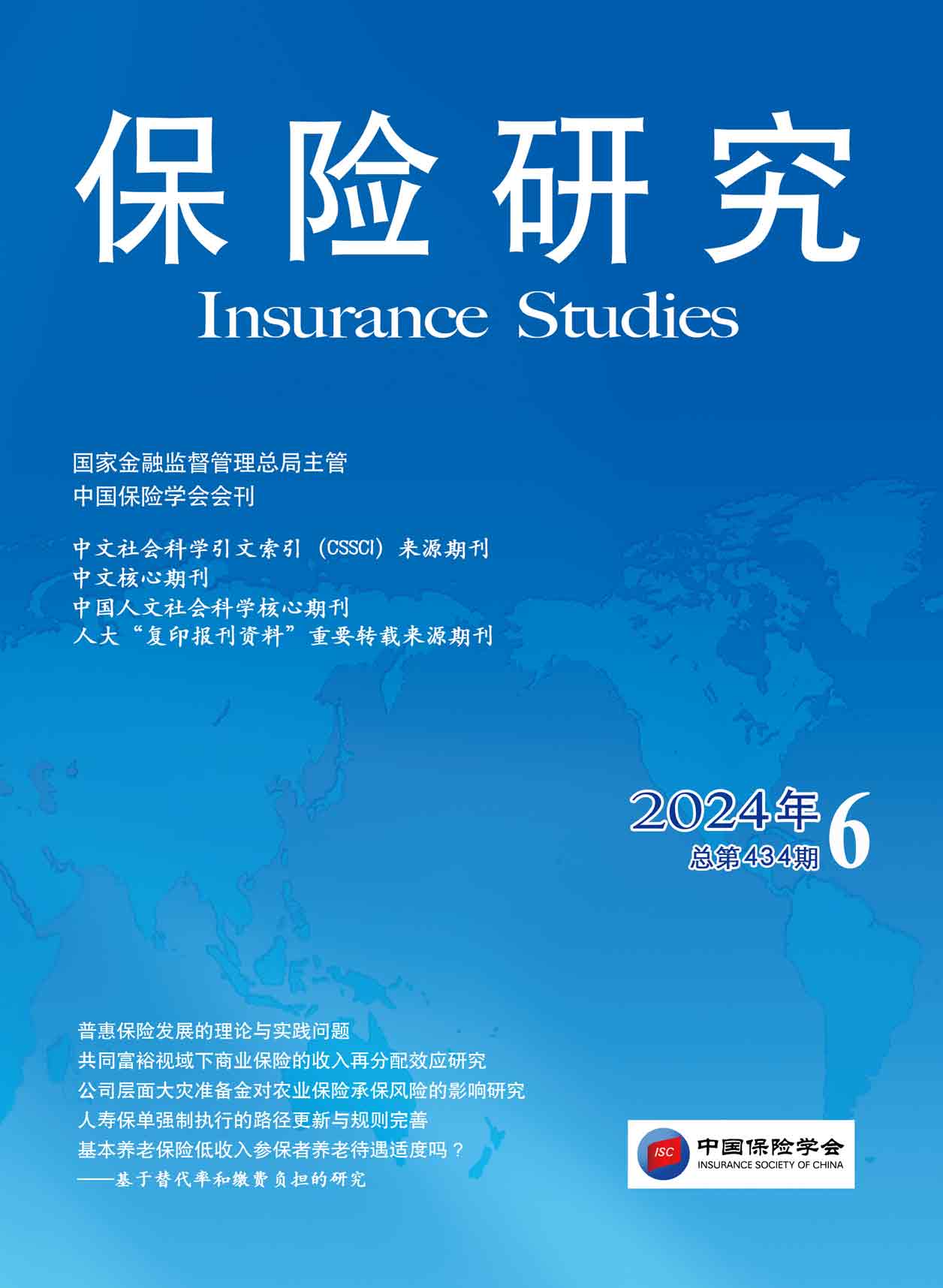
《保险研究》20240601-《普惠保险发展的理论与实践问题》(陈秉正、毛羽)
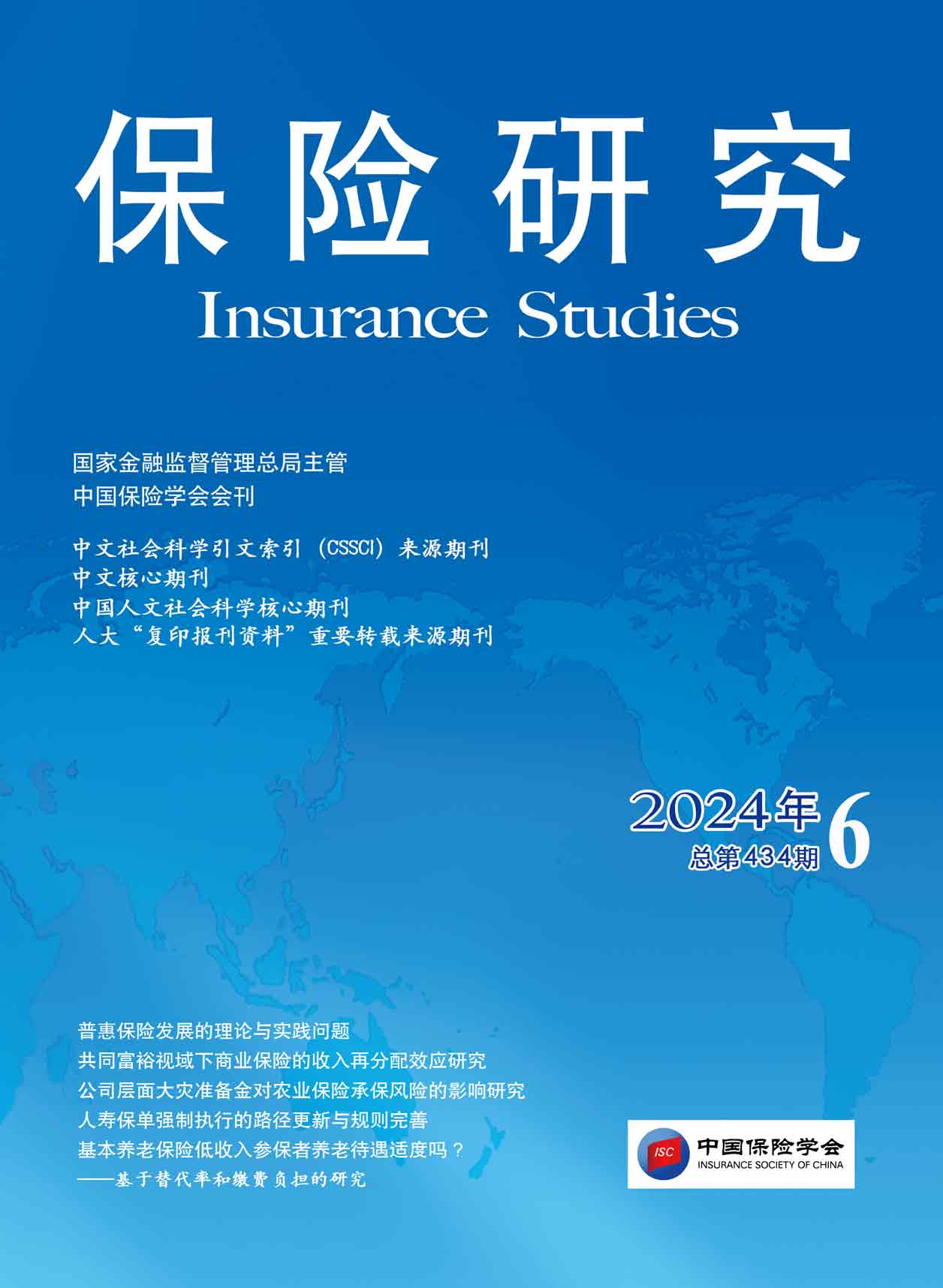
《保险研究》20240602-《共同富裕视域下商业保险的收入再分配效应研究》(张宗军、党新宇)
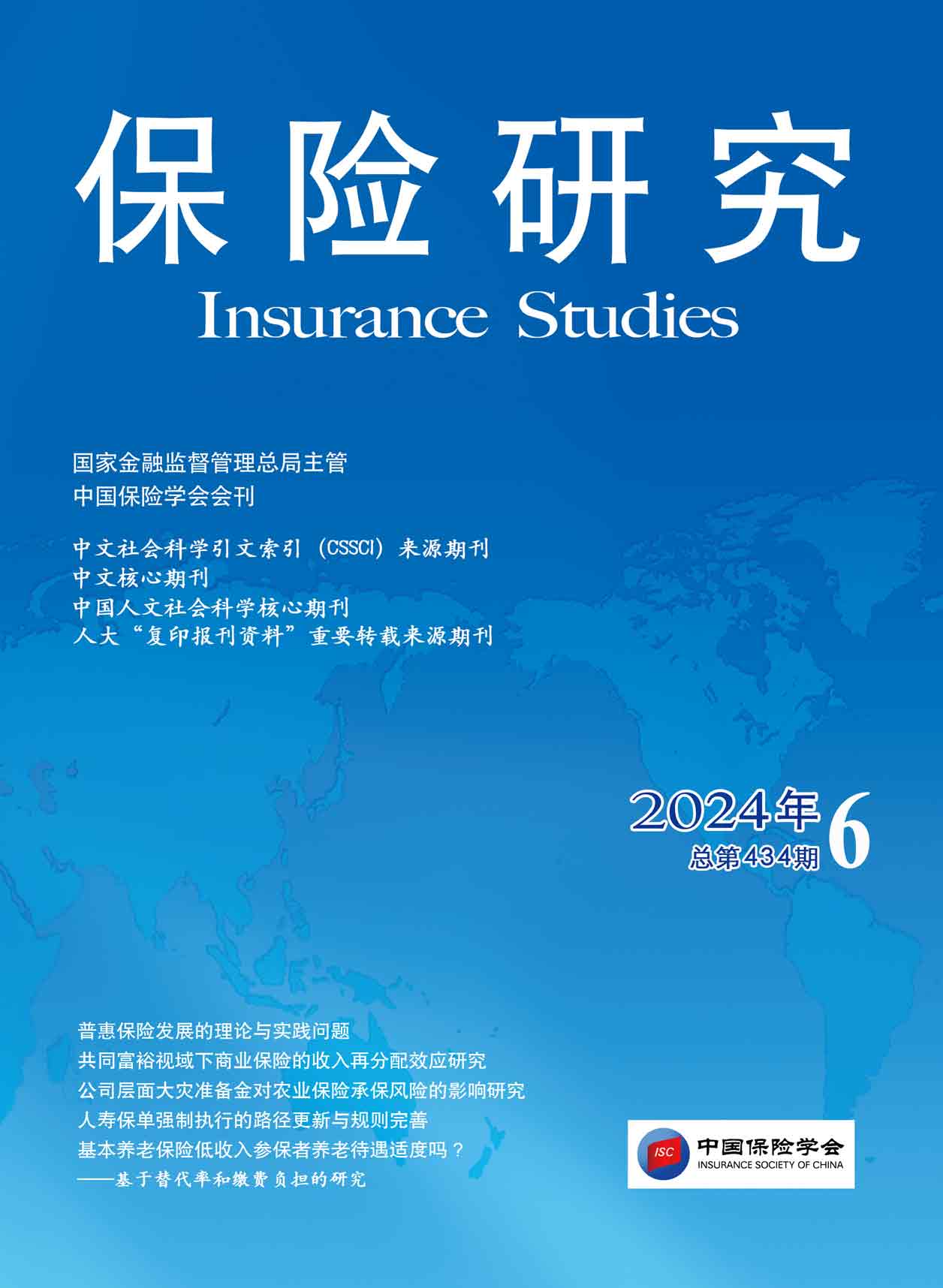
《保险研究》20240603-《政府引入商业保险参与社会治理的典型模式与应用路径研究》(高凯、丁少群)
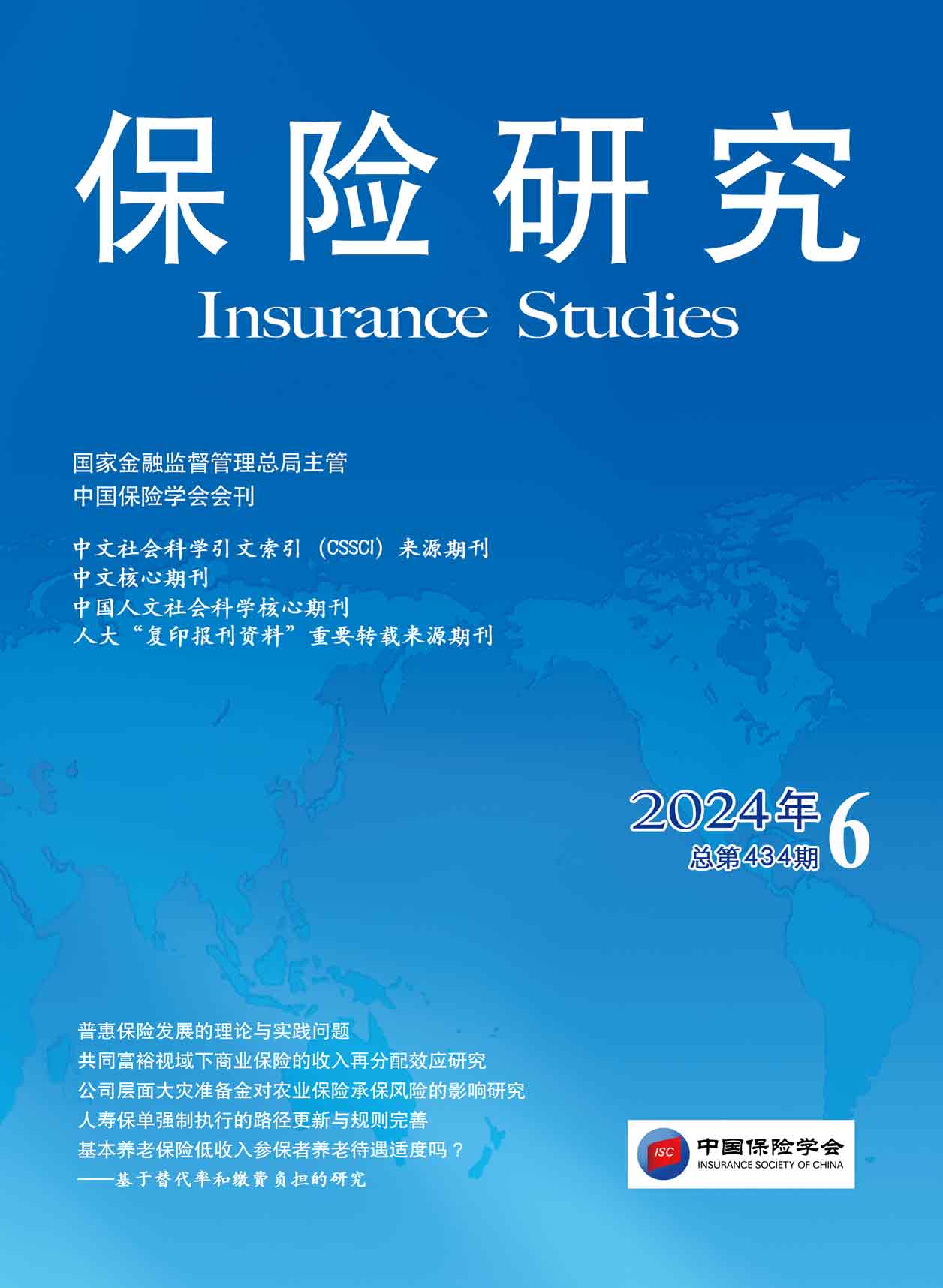
《保险研究》20240604-《险资持股与上市公司经营风险》(王莉、王国军)
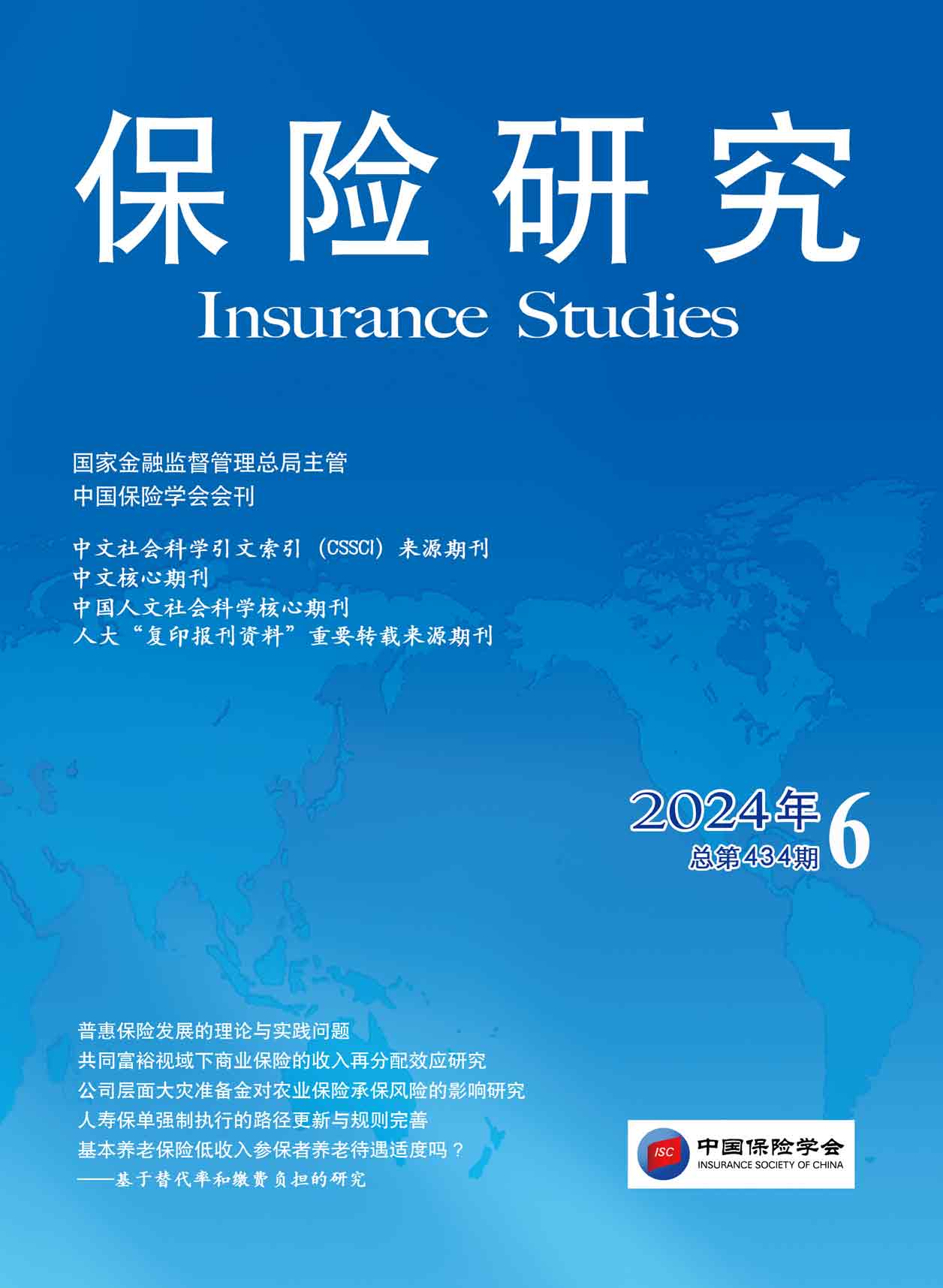
《保险研究》20240605-《基于R-Vine Copula的财险公司经济资本度量与分散化效益研究》(郑敏、郑苏晋、刘皖)
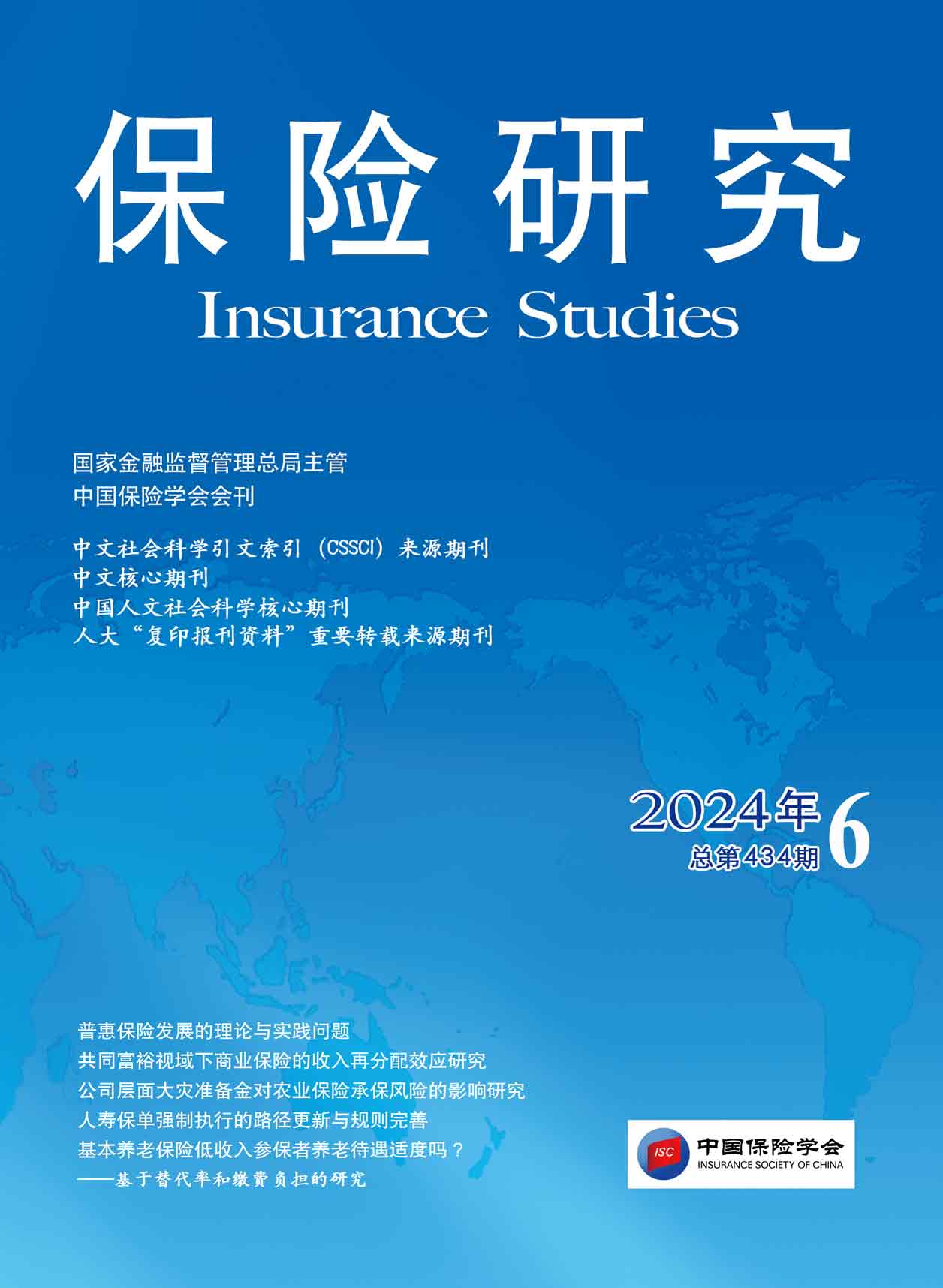
《保险研究》20240606-《政策性农业保险对农户绿色生产的影响研究——基于4省小麦种植户的调查数据》(张旭光、柴智慧)
